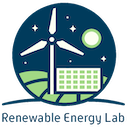Based on the basic knowledge of mathematics and physics, the students gained knowledge in thermodynamics, fluid mechanics and physical chemistry. The basic laws can be transferred to technical and physical effects in everyday life. In addition, the students have acquired the ability to see the theoretical core in a complex practical context.
Thermodynamics
Fluid Mechanics
Physical Chemistry
Applied Sciences and Engineering (B. Eng.), Industrial Engineering/Environmental Planning (B. Sc.), Renewable Energy (B. Sc.)
| Semester | Average grade | Failure rate |
| WiSe 2019/20 | 4,4 ± 0,8 | 61 % |
| SoSe 2019 | 4,6 ± 0,9 | 79 % |
| WiSe 2018/19 | 3,9 ± 0,8 | 39 % |
| SoSe 2018 | 4,5 ± 0,9 | 71 % |
| WiSe 2017/18 | 4,6 ± 0,5 | 77 % |
| SoSe 2017 | 4,5 ± 0,8 | 63 % |
| WiSe 2016/17 | 4,3 ± 0,6 | 40 % |
| SoSe 2016 | 3,7 ± 1,2 | 39 % |
| WiSe 2015/16 | 4,0 ± 1,1 | 43 % |
| SoSe 2015 | 4,2 ± 1,0 | 62 % |
| WiSe 2014/15 | 4,1 ± 1,0 | 54 % |
| SoSe 2014 | 3,7 ± 1,2 | 38 % |
| WiSe 2013/14 | 4,2 ± 1,1 | 62 % |
| SoSe 2013 | 4,5 ± 0,6 | 62 % |

Renewable Energy Lab
Prof. Dr. Henrik te Heesen
Institute for Operations and Technology Management
Environmental Campus Birkenfeld
You are leaving the official website of Trier University of Applied Sciences